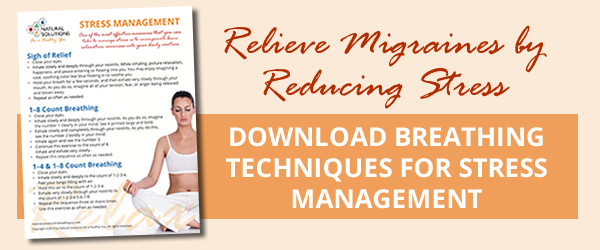Anxiety and insomnia affect millions of people every day. Not surprisingly, stress is one of the main culprits responsible for our worry and lack of sleep. While we can’t control all the stressors in our lives, one of the keys to managing anxiety and insomnia is controlling and/or minimizing the impact that stress has on us. One of the easiest and most effective ways to do this is through deep breathing.
Manage Anxiety and Insomnia Through Deep Breathing
We breathe a lot, every day. In fact, most people breathe between 12-20 times every minute –that’s almost 30,000 times every day! This provides us ample opportunities to reduce the impact that stress has on our health, which will allow us to reduce and manage anxiety and insomnia due to stress.
Everybody knows that taking a deep breath, or letting out a sigh of relief reduces tension in our bodies and helps us to feel more relaxed. The trick to effective stress management is to breathe deeply as often as possible throughout the day to maximize this stress reduction benefit.
Here’s a great way to get started: use some trigger to help remind you to breathe deeply throughout the day; examples include every time you send/receive an email, text or phone call; every time you walk through a door; every time you come to a stop sign/traffic light; or even every time someone says your name. Whatever your signal, whenever it happens, take a deep, relaxing breath – draw in air nice and slowly and let the entire expanse of your lungs fill up; then hold it for just a second before releasing all the air from you lungs. Many people find it helpful to push the last remaining air out of the lungs, which automatically triggers another deep breath. Do this throughout the day, every day, and you can dramatically reduce the impact that stress has on your health – and it doesn’t cost you anything!
Deep breathing is one of the most effective techniques to manage anxiety throughout the day. Doing a series of ten (or more) deep breaths before bed (or during the night if you awaken) can also be very helpful in managing insomnia or occasional sleeplessness. The most important part in managing insomnia is not to expect to fall back asleep. Let the deep breathing do its work – whether you fall back asleep or not, it will help you to relax and at the very least, get some rest. Eventually, with enough time and practice, many people find that it can also help calm the mind down enough to allow them to fall back asleep.
Breathe Deeply and Calm Your Mind
Everybody is bombarded with stressors every day, and it can take a large toll on our health – including making us feel anxious and keeping us from getting good quality sleep. Luckily, simple techniques such as deep breathing can be performed throughout the day to minimize the impact that stress has on us and provide a safe, effective (and free!) tool for us to manage anxiety and insomnia.


